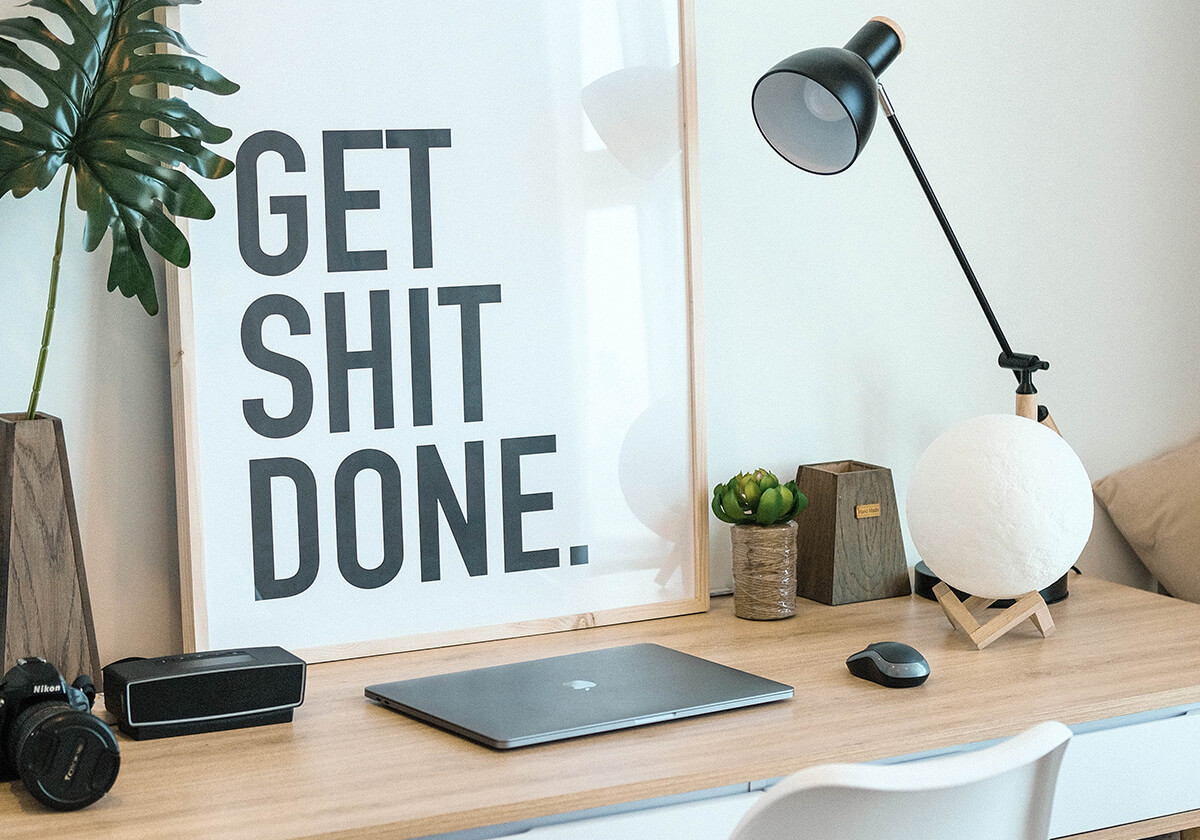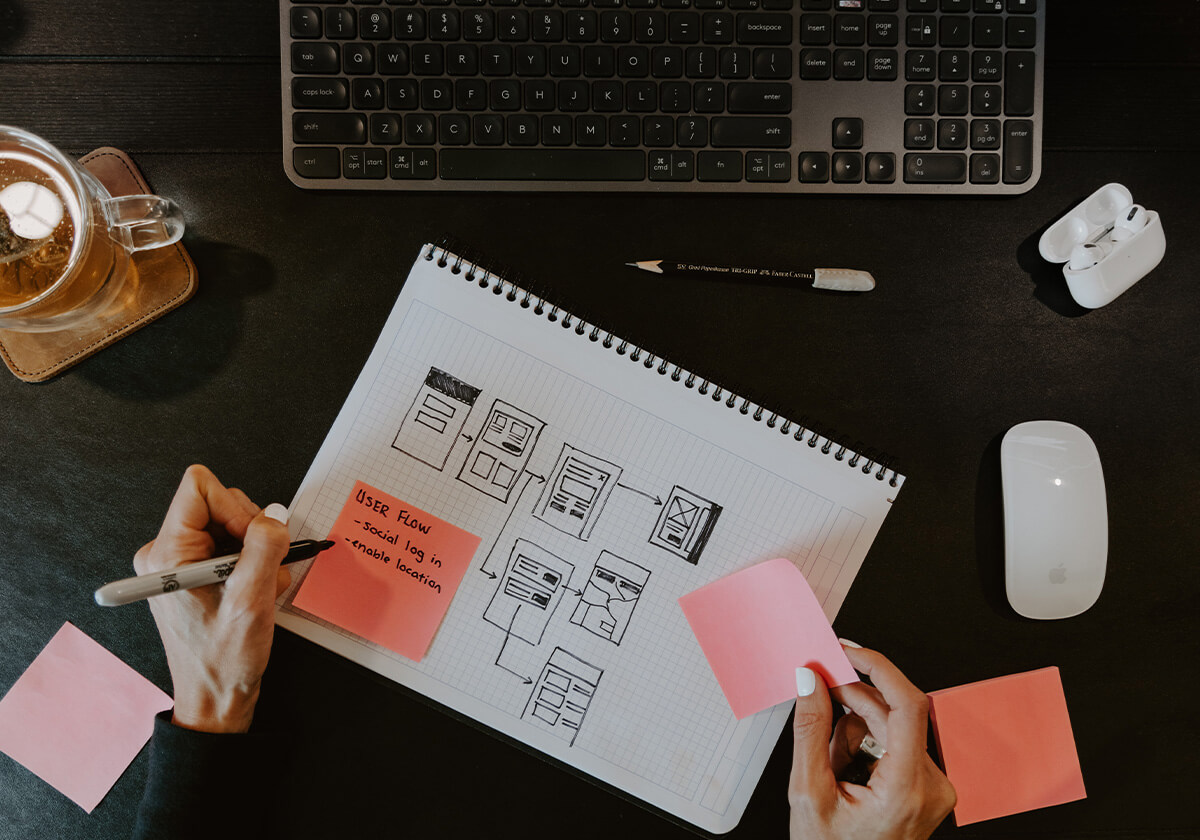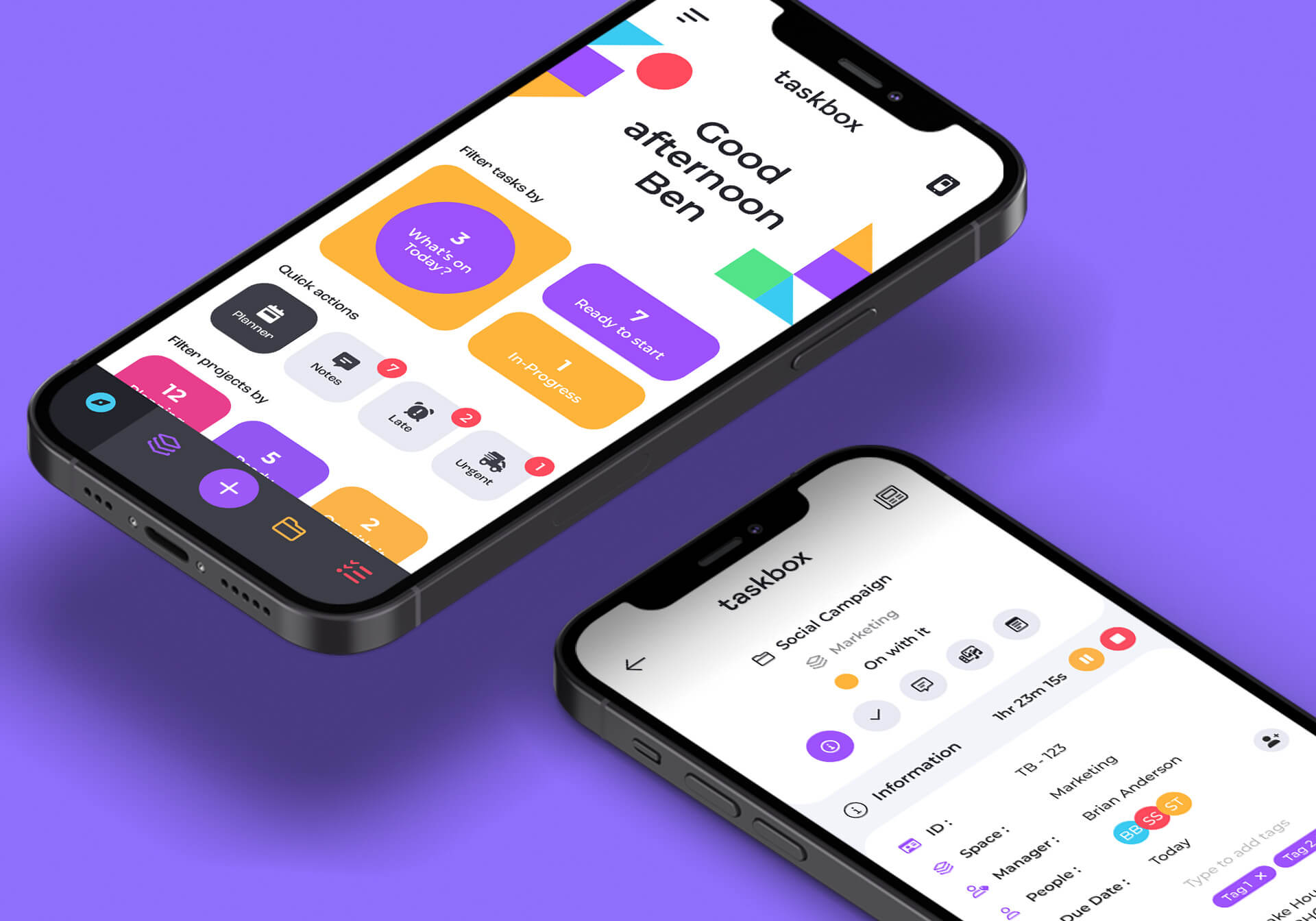10 Simple ways to reduce stress at work

The average business professional can manage anywhere from 10 to over 100 projects. Yet, according to Forbes, modern workers can be interrupted up to seven times an hour and distracted over 2 hours of a working day. On top of this, many large companies face major restructurings, causing job uncertainty. This may be why over 40% of professional adults say they lie awake at night due to stress.
With all the daily tasks that need completing and the expectations we set ourselves, is there a way to reduce the burden of stress? We've been working closely with a select group of our clients to create our top 10 ways to reduce stress at work by simply making a few tweaks to your routine.
Let’s dive in and take a look…
To achieve great things, two things are needed: a plan and not quite enough time.
- Leonard Bernstein

1. Start your day off right
The transition from home to work can sometimes be a battle. Maybe you're scrambling with the kids, your dog is poorly, or traffic was bad getting into the office. You can never account for the unexpected.
Begin your work day by looking through a clear and concise list of the tasks you have ahead. This immediately calms the nerves. You know that you can achieve the goals you have for the day. If you don't think you can, you then need to prioritise. This leads me to our next tip.

2. Prioritise your priorities
We all know that dreaded feeling. I've planned too much work for today. So what am I going to do? How am I going to manage this workload?
In a world of competing deadlines and fast-changing urgencies, it's crucial to prioritise the essential tasks for the day. Understand your role within the company and play to your strengths. If it's an option, maybe ask for some help. Reduce the list of tasks by focusing on the ones that will provide the most significant impact.
This leads me to our third tip. Be clear on requirements.

3. Be clear on requirements
Have you ever set yourself a task thinking, I'll remember that critical detail. Then when it comes to completing the task, you can't remember half of what needs doing. 🫣
A factor known to contribute to stress and burnout is unclear task requirements. If you don't know what is expected of you, or if the requirements for your role keep changing with little notice, you will inevitably become highly stressed.
If you're planning work for yourself, make sure you add those essential details. If you're planning work for someone else, tell the story of the task and explain the requirements clearly. If you're completing tasks and have no idea what needs doing, speak to the person who planned the work and explain where you're struggling. It will honestly make a world of difference for everyone.

4. Be pro-active instead of reactive
Do you ever feel more stress when you experience a situation that is out of your control? This is because it activates our stress hormones, makes us tired and reduces confidence, concentration and well-being.
Identifying what you are in control of and what you are not is essential. You can only be in control of your actions.
A quick way of doing this is monitoring the tasks you complete each day. Identify what is done late, not done correctly or not done at all. Then look at why this is. If the reasons are out of your control, let them go. If the reasons are in your control, note them down, learn from them and move on.
Much of the stress that people feel doesn’t come from having too much to do. It comes from not finishing what they’ve started.
- David Allen

5. Stay organised
This one seems obvious, but it can often catch us out. This is because it can often seem like more work to be organised than to let routine slide.
Planning to stay organised will significantly decrease your stress at work. Monitor your time throughout the day, update your task list as you go and avoid rushing or being late. Of course, it will take time for this to become second nature, but when it does, work stress naturally reduces.

6. Avoid multitasking
Once identified as a "skill" used to maximise productivity and get more done. However, as you may have experienced in the past, doing two things at once can often reduce speed and accuracy. Not to mention that fuzzy burnout feeling you get when eventually your stress levels begin to rise.
Replace multitasking with efficient task planning. Block out clear chunks of time to complete a single task, and you will notice that you achieve the same number of tasks in a similar time frame, but you will feel much better about your work.

7. Done is better than perfect
Delivering the best results possible may make you feel good about yourself, but being a perfectionist can often create problems for you and the people around you.
Perfectionism usually comes at a cost in time, and the time you lose achieving perfection doesn't contribute to increased standards. However, we've found that 80% of tasks can often be completed in 20% of the time it takes to achieve perfection. So focus on managing your time to achieve good standards and be sure to reward yourself for a job well done. This leads us to tip 8.

8. Enjoy the wins
We're often so focused on completing the next task that we forget to stand back and give ourselves a pat on the back for a job well done. By identifying your wins, you can take more pride in the work you complete whilst also understanding your time management and quality control.
Monitor the daily tasks and see how your results compare to the planned work. Check to see what was done on time, what was late and what was missed. This ensures work is complete on time and allows you to get better at planning or provide feedback to your team that plan for you.
Smiling can be infectious in a workplace to help reduce stress, to help teamwork, to defuse high-pressure situations. The more you smile, the more people will smile back.
- Byron Pulsifer

9. Plan for tomorrow
Checking the plan for tomorrow is the penultimate and one of the more essential tips for reducing stress. I'm sure you've heard of the famous Winston Churchill quote, "He who fails to plan, plans to fail". It is as simple as that when it comes to managing stress. The better you can plan for your day ahead, the better your chance of reducing your stress.
Take a look at what you have scheduled for tomorrow. Honestly, ask yourself, Can I complete this? If the answer is no, prioritise and make adjustments. You know that when you complete step 1 in this article (Start your day off right), you are pretty good to go.

10. Enjoy the journey home
And finally, the easiest tip of all to reduce stress at work… Leave work at work and enjoy the journey home. In a world where business may never sleep, you need to set clear boundaries of when to finish work.
Try listening to music to reduce your stress levels, whether driving, travelling on public transport, walking home or working from home. Try uplifting, feel-good, or songs that remind you of good times.
The next time you are tempted to get anxious or upset about something – especially something in the past or the future – think about what you are doing and turn your mind to what is going on today.
- Joyce Meyers
Conclusion
These tips are little pointers to help you throughout the day. Some tips can be introduced quickly, and some take a little more time to get used to, but I can speak from personal experience when I say they honestly make a difference. As the founder of Taskbox, I have experienced many forms of work stress. Impossible deadlines, extremely long hours, financial pressures, customer issues, etc. By introducing these tips into my working day, I've not managed to remove the stresses from work, but I have been able to control and manage them far better.
Over the years, I've concluded that stress is simply wasted energy. It doesn't achieve anything. It doesn't fix the issues that cause the stress. By learning to manage and control these areas, I've been a more efficient worker.
I'd recommend you try using Taskbox to help with some of these tips. We have dedicated thousands of hours to implementing specific functionality to help reduce stress in each area.
I genuinely hope this article helps you to reduce your work stress.
All the best,
Ben
For Latest News & Update
Get updates on new articles!
We will keep you up to date with new articles released.
Let's Try! Get Free Support
Start Your 14-Day Free Trial
We can help you to create your dream website for better business revenue.


